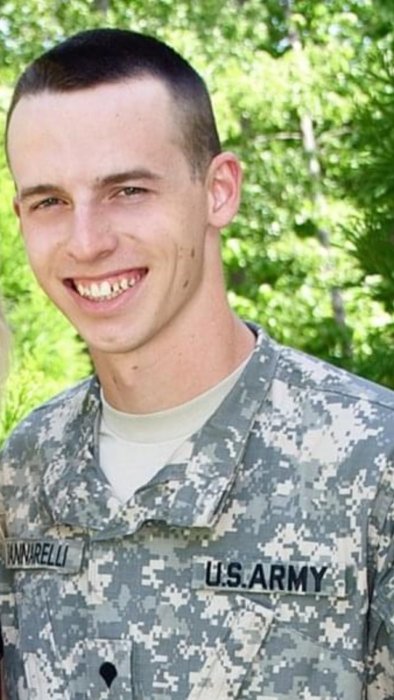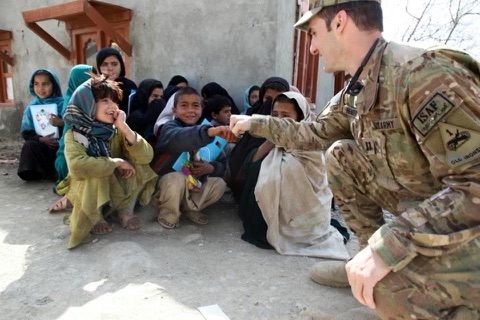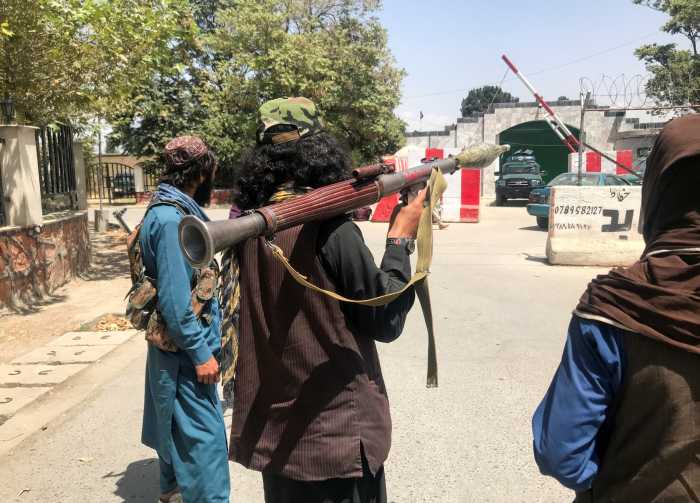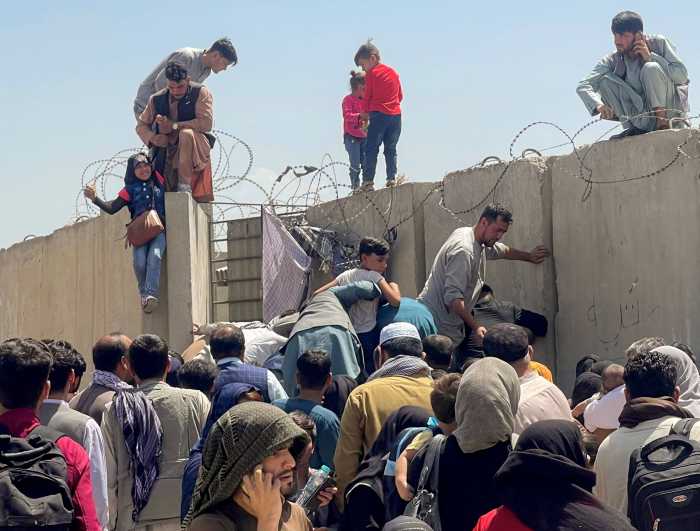Nearly 20 years ago, as he watched the Sept. 11 attacks, Dave Henderson—then a junior at Roxborough High School—decided to pursue a career in the military.
After graduating from West Point, he did two tours in Iraq, and, later, he spent nine months leading a U.S. Army combat outpost in Afghanistan’s Khost Province.
Henderson, now 36 and living in Harrisburg, said he felt a flurry of emotions — sadness, disappointment, anger, disillusionment, betrayal — as he watched the country fall back into the hands of the Taliban.
“It’s disheartening. It’s heartbreaking,” he told Metro. “A really crappily-done plan just unravelled 20 years of progress.”
Veterans from the Philadelphia region who spent time in Afghanistan are processing a mix of emotions in light of the U.S. military’s withdrawal from the country, as the push continues to evacuate Americans and those who aided the troops.
“I didn’t realize how personal this was going to be to me,” said Robert Iannarelli, 32, of Malvern, a former U.S. Army specialist who spent a year in Kabul and Bagram.
“When you’ve put part of your life into such a big project and you’re proud of that time served and to see that essentially thrown away by what seems to be a political move and not a strategic one,” he added. “That’s just really upsetting.”
During Henderson’s first month in Afghanistan, three soldiers on his team and a translator were killed in a suicide bomb attack. Part of his job was to sell his troops on the mission to get them to return for the next patrol.
He recounted telling them that what they were doing had lasting permanence, that they were making a difference in Afghanistan.
“We’re still in all those countries from World War II because we made an enduring commitment to stay,” Henderson said. “So you’d like to believe the same thing is going to happen in Afghanistan.”
Iannarelli believes he and others in the military were able to improve people’s lives. He served as an on-base mechanic and interacted with Afghans through a humanitarian assistance program.
“They have hopes and dreams,” he said. “Our presence there in Afghanistan changed the lives of a lot of guys, and they saw more opportunity.”

Henderson and Iannarelli separately expressed the view that leaving a small contingent of American soldiers in the country could have prevented the Taliban takeover.
“If the U.S. military had simply stayed, you have your foot on the throat of the enemy,” said Henderson, who founded a defense contracting firm after his military service. “That’s just to hold them in place. It’s just to deny terrain. It’s just to disrupt their organization.”
“I think a drawdown was always a good idea,” Iannarelli said. “It’s just the way that it was handled. You know, we basically left in the middle of night.”
Iannarelli didn’t blame the U.S.-trained Afghan forces who surrendered. They always relied on foreign support and a fight against the Taliban probably “wasn’t going to be winnable for them,” he added.
Both veterans are skeptical of the Taliban’s promise not to harbor terrorists and to respect the rights of women within the framework of Islamic law. During its previous rule, the organization publicly executed people and enforced strict laws governing the behavior of women and girls.
“They know they’re in the public eye right now,” Iannarelli said. “Once the United States pulls out, they’re going to be bolder, and I think there’s a good chance they’re just going to do whatever the heck they want.”
Henderson compared the situation to the initial U.S. withdrawal from Iraq a decade ago, which sparked turmoil that led to the rise of the Islamic State group, known as ISIS.
“The vacuum of power that has just been created is going to yield something,” he said. “And when that something is yielded, and it attacks America, there’s going to be a lot of soldiers that say, ‘I f—— told you so.’”




























